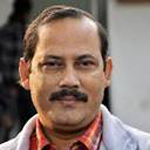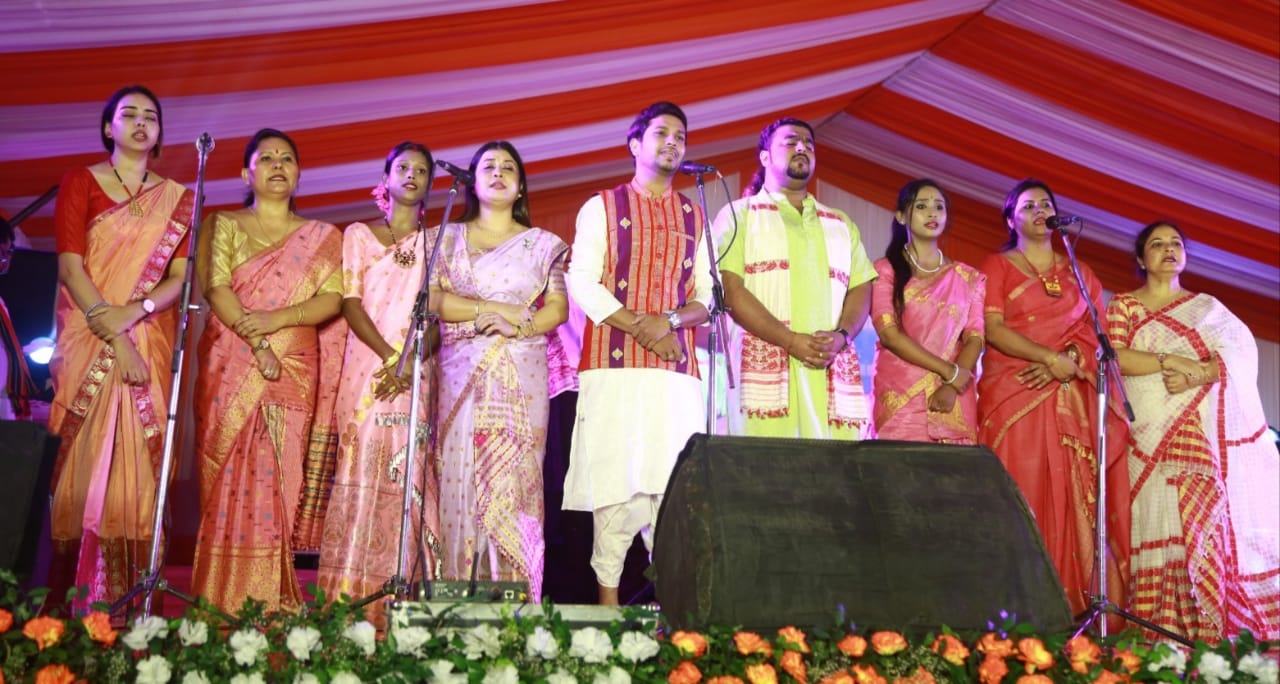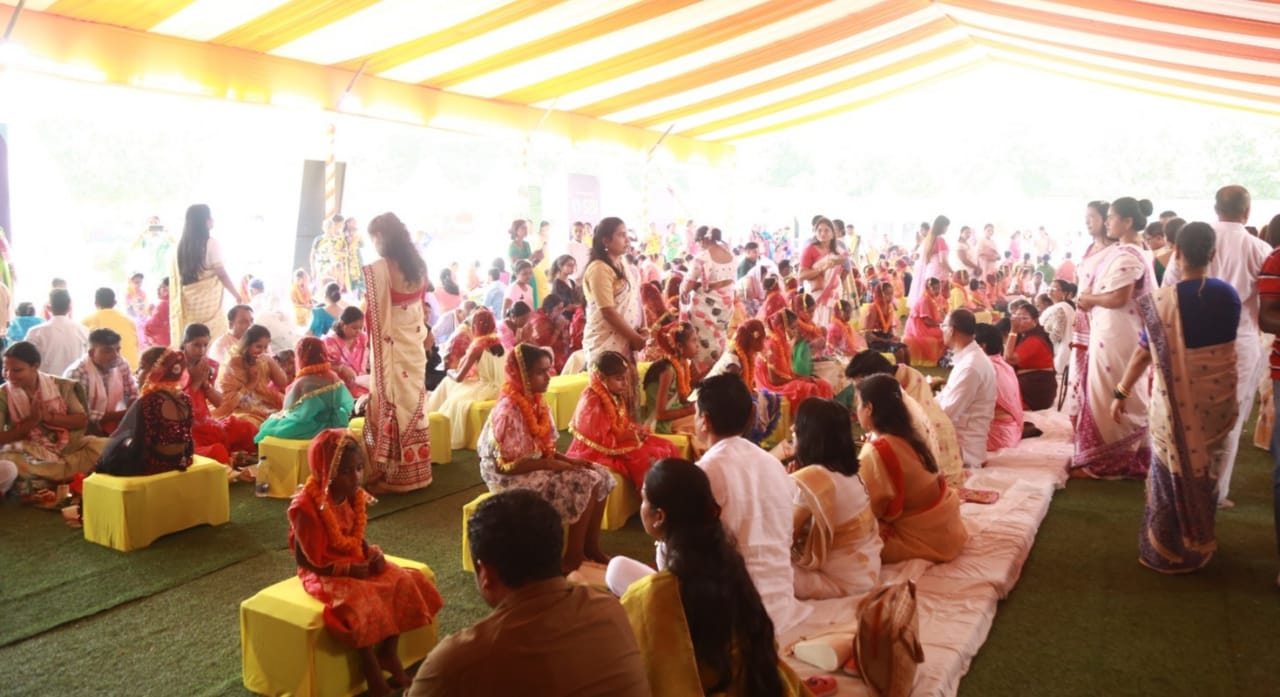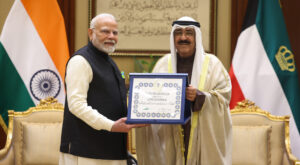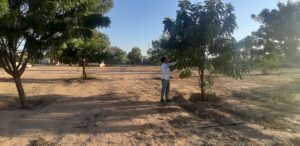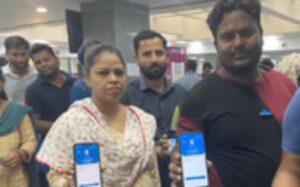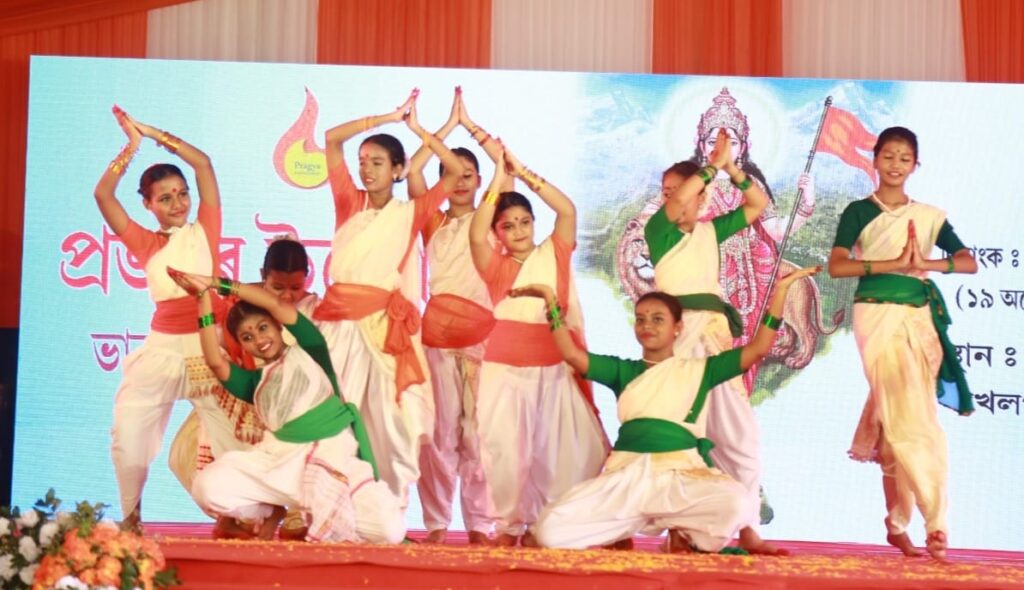
Guwahati: It’s usual to display love and affection for the country, but when the residents worship their motherland as a deity, the trend emerges unusual, and it happens only in India (Bharat). Indians continue calling their motherland Bharat Mata (or Bharatamba – Mother India) since time immemorial.
In reality, the national personification of India as a mother goddess gained momentum during the freedom movement against the British. Bankim Chandra Chattopadhyay introduced a hymn titled ‘Vande Mataram’ in his Bengali novel ‘Anand Math’ (1882) and later Kiran Chandra Bandyopadhyay performed a play titled ‘Bharat Mata’.
Pioneer Indian painter Abanindranath Tagore portrayed Bharat Mata as a Hindu goddess in a painting (1905), where the four-armed deity, wearing saffron-coloured traditional garments, had carried a book, an Akshmala, sheaves of rice and a piece of white cloth. Bharat Mata as a Devi was also printed on the cover of Subramania Bharati-edited Tamil language magazine ‘Vijaya’ in 1909. Since then Bharat Mata, wearing a red-coloured sari with a saffron flag on hands with an accompanying lion, has been used to symbolise a culturally unified motherland (Akhanda Bharat) for millions of Indians.
The abundant love, affection and commitment for the nation were also reflected in a recently concluded five-day spiritual festivity of the ‘Bharat Mata Pujan 2023‘ cultural extravaganza in Guwahati.
A collective dance on the theme of Vande Mataram with 700 young participants from the Harian community turned out to be a visual feast for the audience. A splendid group dance competition featuring 70 teams enthralled everyone in the evening hours. Thousands with traditional attire participated in Akhanda Bharat Parikrama keeping earthen lamps on their hands and walking around the Bharat Mata idol amidst a model of the Indian subcontinent.
A series of cultural programs including Kanya Pujan (where 101 girls were adored), Guru Pujan (where 88 university vice-chancellors, college principals and teachers were paid respects), Mohiyasi Matri Sanman (where 14 distinguished mothers were honoured), Alpana contest with twelve participating teams, puppet shows by the traditional Assamese string-puppet theatres, folk musical performances and mime shows (by local talents), cultural events conducted by Border Security Forces personnel, illuminating dance shows depicting Punyabhoomi Bharat.
Assam Chief Minister Himanta Biswa Sarma also took time to pay a visit to the festival yesterday evening at its conclusion. His predecessor Sarbananda Sonowal, now a Union Minister, along with State Minister Piyush Hazarika were also present on the occasion.
*Senior journalist


